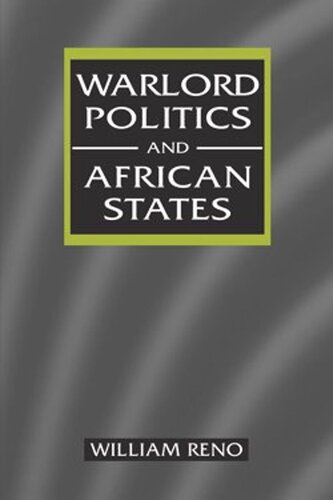

Most ebook files are in PDF format, so you can easily read them using various software such as Foxit Reader or directly on the Google Chrome browser.
Some ebook files are released by publishers in other formats such as .awz, .mobi, .epub, .fb2, etc. You may need to install specific software to read these formats on mobile/PC, such as Calibre.
Please read the tutorial at this link: https://ebookbell.com/faq
We offer FREE conversion to the popular formats you request; however, this may take some time. Therefore, right after payment, please email us, and we will try to provide the service as quickly as possible.
For some exceptional file formats or broken links (if any), please refrain from opening any disputes. Instead, email us first, and we will try to assist within a maximum of 6 hours.
EbookBell Team

4.4
22 reviewsThe dramatic reconfigurations of political authority taking place in Africa—what many term "warlordism" or "state failure"—call for an exploration of the origins of these changes, the likelihood of their durability, and their implications for the continent's regional system of states. Reno argues that the end of the Cold War as a particular configuration of the international state system changed by definition the nature of sovereignty in Africa. Rulers cut off from overseas largess are now vulnerable to threats from strongmen; enterprising strongmen join with marginalized groups to exploit regime weakness; opposing groups traffic in illegal drugs, weapons, and natural resources and even forge foreign commercial partnerships. Focusing on the examples of Congo, Liberia, Nigeria, and Sierra Leone, Reno demonstrates how rulers hold on to power amidst cutoffs of foreign aid, collapsing economies, and disappearing bureaucracies. In his tightly argued book, he analyzes the emergence of a diversity of forms of political authority and the effect of their appearance on relations between states in the region; he also considers how the international system accommodates a growing variety of constitutive entities. The evidence presented contradicts the conventional wisdom that Africa's worst-off states are those increasingly marginal to the world economy. Ironically, closer integration of these states into global markets promotes warlord politics, not the bureaucratic forms of administration that most studies of reform in Africa prescribe.